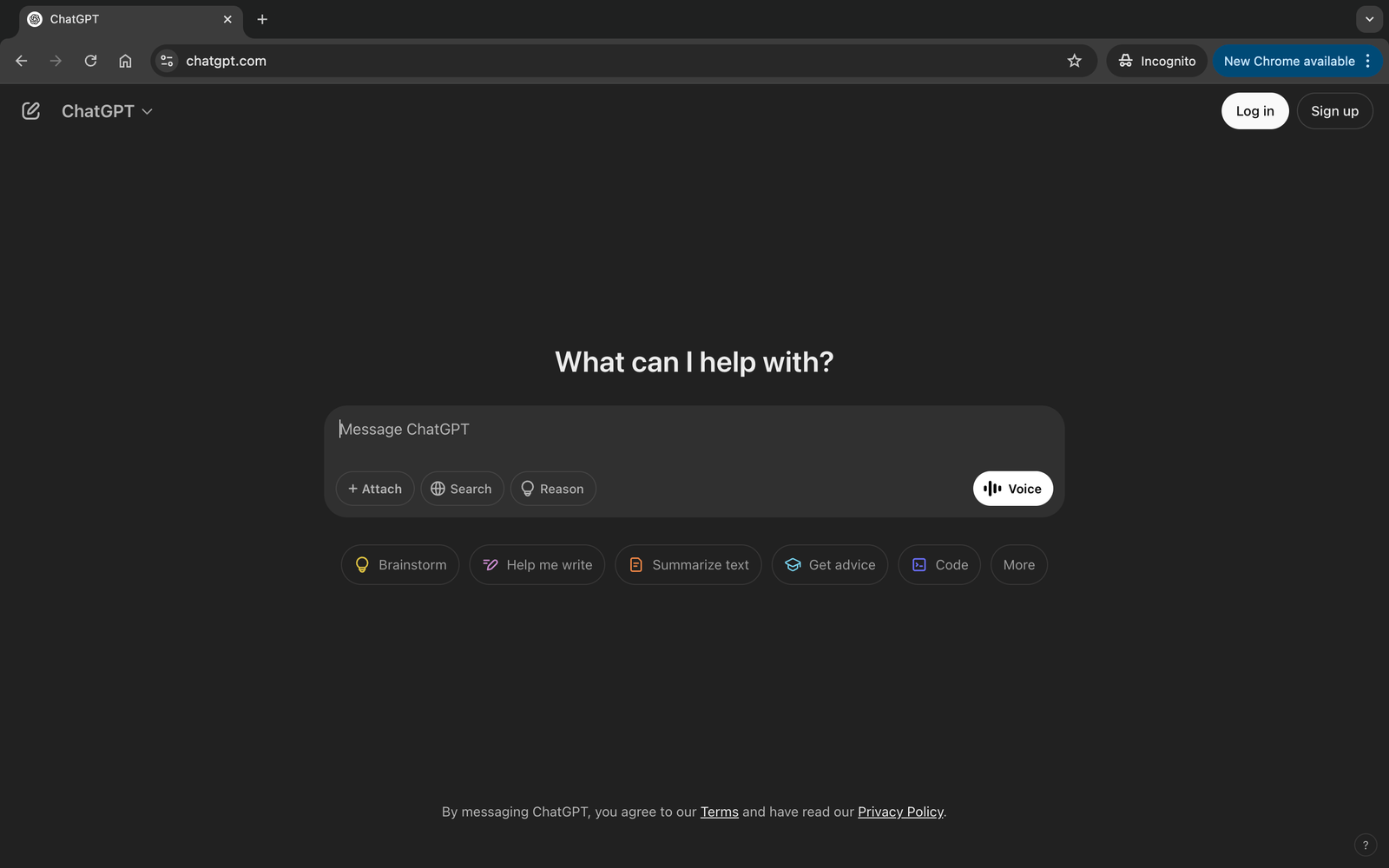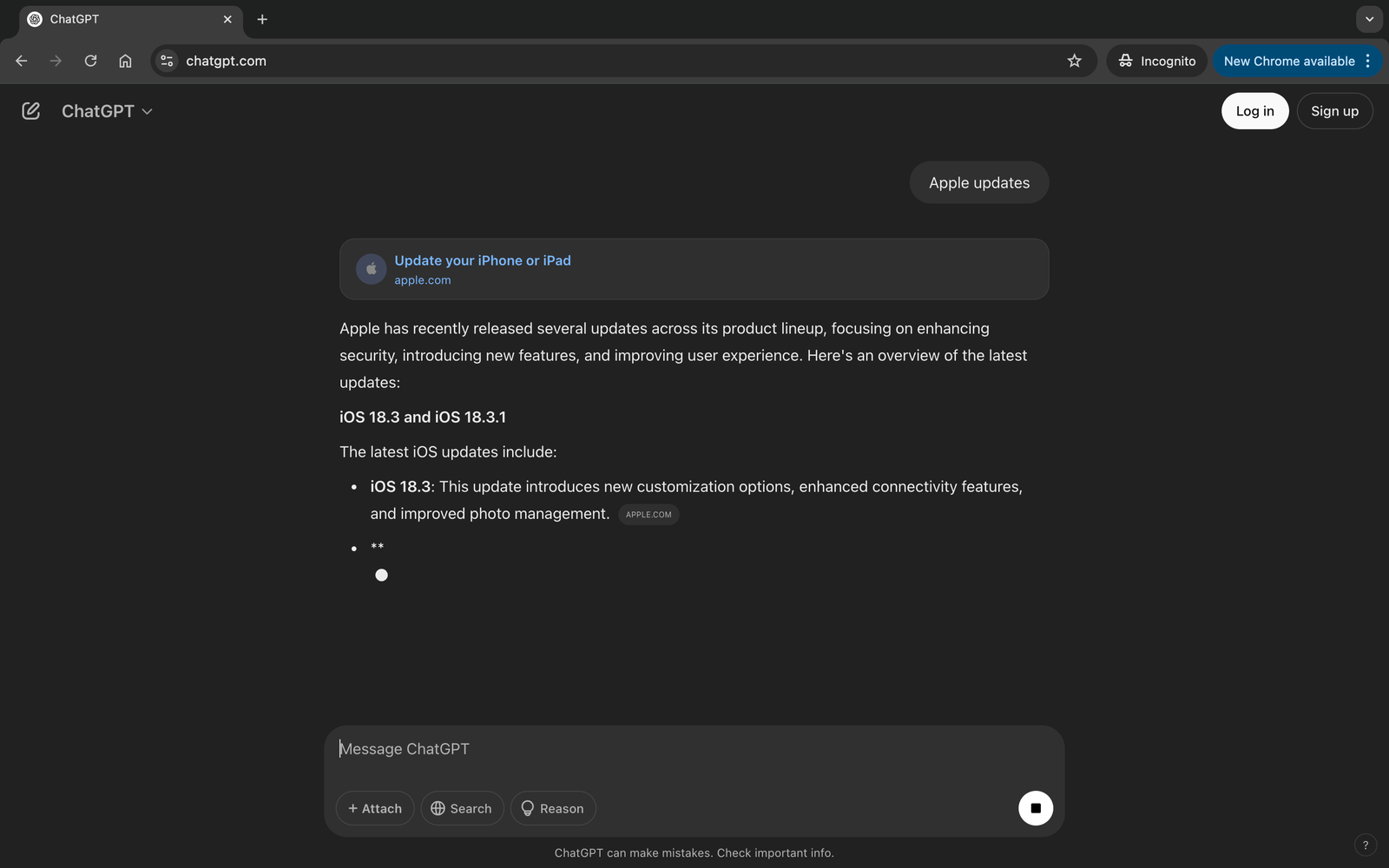OpenAI has made a groundbreaking move by removing the sign-in requirement for its ChatGPT search feature, allowing users to access AI-driven search results instantly. Now, anyone can visit ChatGPT.com and use its search functionality without creating an OpenAI account.
Table of Contents
ChatGPT search is now available to everyone on chatgpt.com -no sign-up required, OpenAI announced in a post on X. This decision is widely seen as a strategic response to emerging competition, particularly from China’s DeepSeek and Google’s Gemini and dominant search engine. By lowering the barrier to entry, OpenAI aims to increase adoption and position ChatGPT as a serious alternative in the search industry.

A Significant Shift in AI Search Accessibility
Removing the sign-in requirement is a major step forward in making AI-powered search more accessible to users worldwide. Previously, ChatGPT’s search capabilities were restricted to paid subscribers when it launched in October 2024. A month later, the feature was expanded to non-paying users who signed up for an OpenAI account. Now, by allowing unrestricted access, OpenAI has effectively positioned ChatGPT as a direct competitor to Google, Bing, and other traditional search engines.
The benefits of this change are immediate and far-reaching. First-time users can now experience AI-driven search without the friction of signing up, while those seeking quick answers can leverage ChatGPT’s conversational search without hassle. This move is expected to increase engagement, attract new users, and drive wider adoption of AI-powered search solutions.
How ChatGPT Search Works ?
Using ChatGPT’s search is simple and intuitive. Users can navigate to ChatGPT.com, click on the search icon in the text box, and enter their query in natural language. The AI model will either provide an instant response based on its existing knowledge or, if the query requires up-to-date information, perform a web search to fetch relevant data.
One of the key features distinguishing ChatGPT’s search from traditional engines is its ability to summarize and contextualize results. Rather than presenting users with a long list of blue links, ChatGPT generates a concise response, often supplemented with relevant sources for verification. Users can click the “Sources” button to explore the references used in the answer, ensuring transparency and reliability.
Additionally, ChatGPT supports follow-up questions, enabling users to refine their search without starting from scratch. This conversational capability makes the search experience more fluid and personalized, mimicking a real-time interaction with a knowledgeable assistant.

Evolving into a Full-Fledged Search Engine
With recent updates, ChatGPT’s search functionality is evolving to resemble traditional search engines more closely. Now, responses may include maps, images, and short descriptions of local attractions—features that bring it closer to Google’s capabilities.
Moreover, OpenAI has strengthened ChatGPT’s data sources, allowing it to deliver accurate information across various domains, including news, stock market updates, sports scores, and weather forecasts. These improvements significantly enhance the chatbot’s reliability for everyday searches.
Beyond search, OpenAI has also expanded ChatGPT’s integrations within Apple’s ecosystem. With iOS 18.1, iPadOS 18.1, and macOS Sequoia 15.1, ChatGPT is now available via Siri, allowing Apple users to access AI-powered responses directly through voice commands. Additionally, ChatGPT’s AI capabilities extend to Writing Tools, Messages, and image creation via DALL-E, further cementing its presence across different platforms.

A Threat to Google’s Dominance?
Despite ChatGPT’s advancements, Google remains the dominant force in the search industry. While AI-powered chatbots like ChatGPT offer a unique, conversational approach to search, they still face challenges such as hallucinations (incorrect or misleading information) and inherent biases in AI models. These issues prevent them from fully replacing traditional search engines for mission-critical and highly precise queries.
However, OpenAI’s decision to make ChatGPT search freely available could still have a significant impact. By reducing friction for new users and expanding its capabilities, ChatGPT is now more competitive than ever. If OpenAI continues to refine its AI models and address accuracy concerns, Google may eventually have reason to worry.
The Future of AI-Driven Search
With this latest update, OpenAI has made a bold statement: AI-powered search is here to stay. By eliminating sign-in requirements, ChatGPT is now accessible to a wider audience, offering a glimpse into the future of search-one where AI doesn’t just retrieve information but actively assists users in understanding and contextualizing it.
Whether this move will propel ChatGPT into mainstream search dominance remains to be seen. However, one thing is certain: the search landscape is evolving, and AI-powered solutions like ChatGPT are at the forefront of this transformation.

